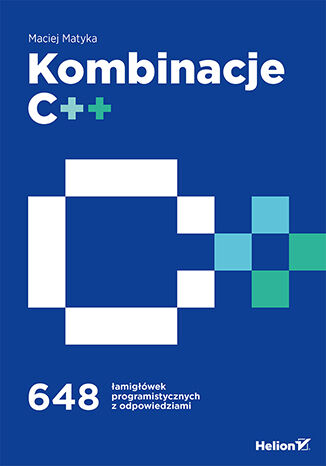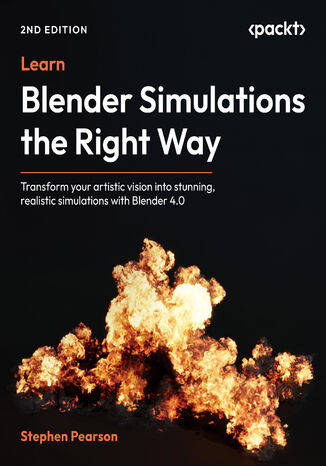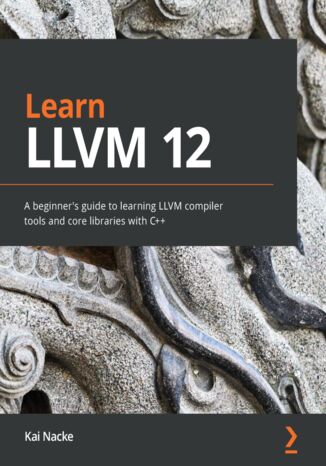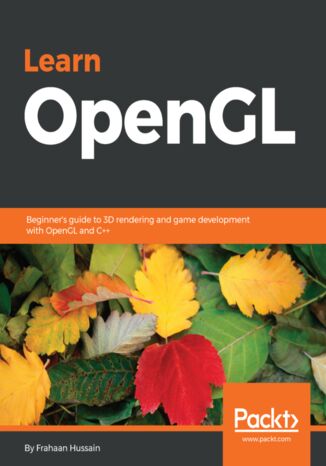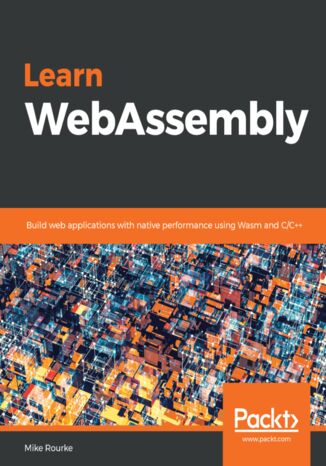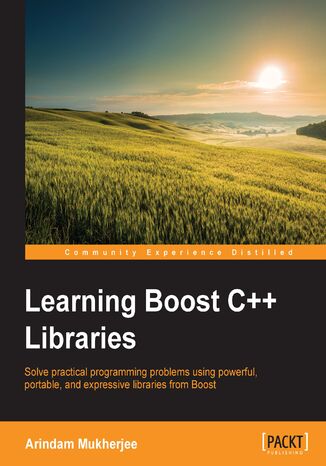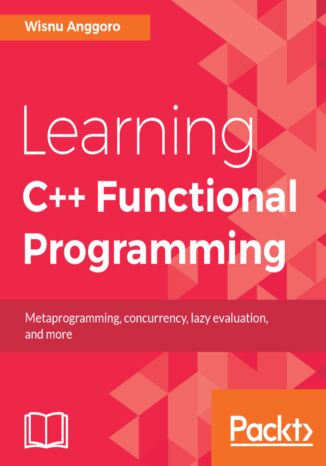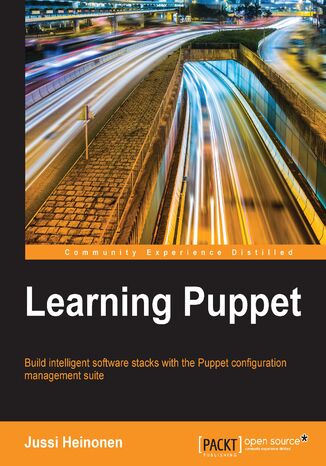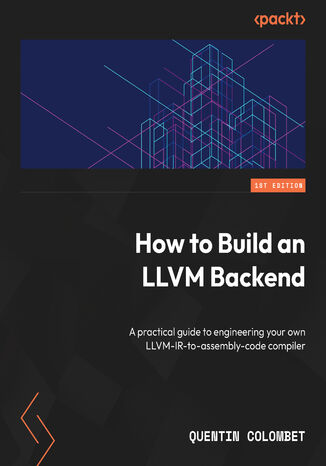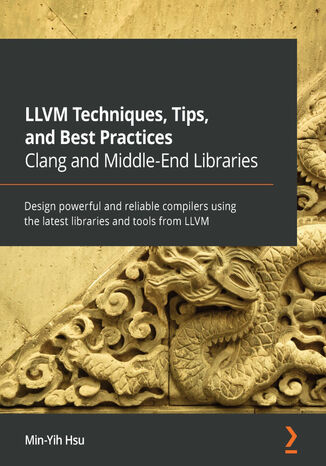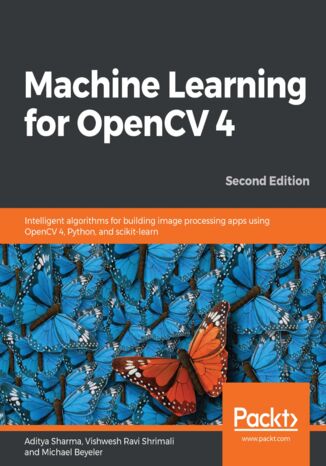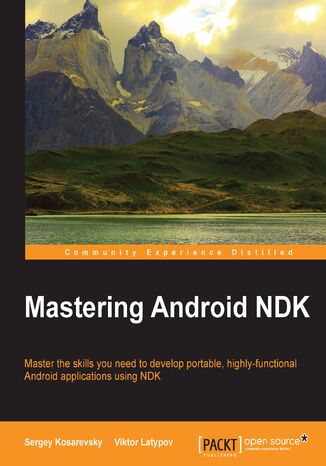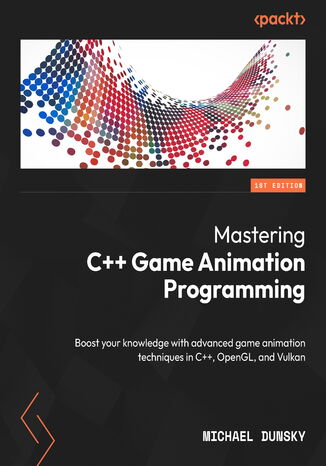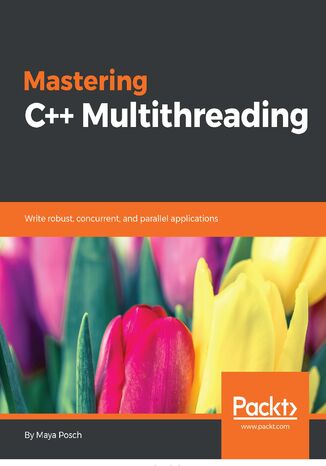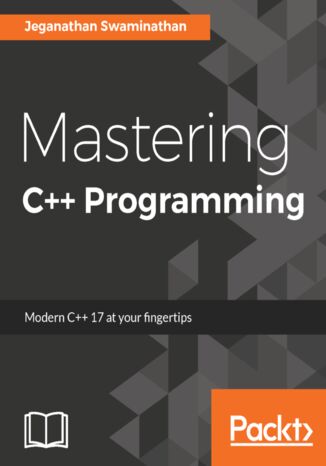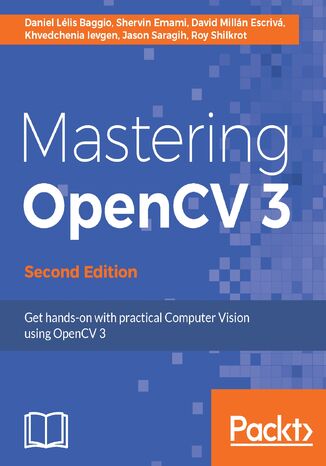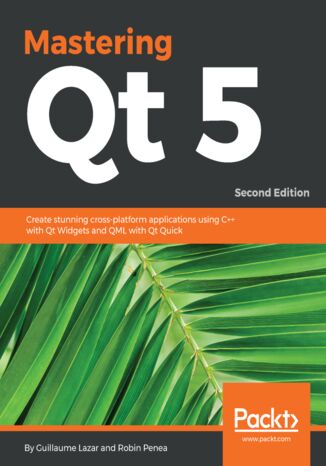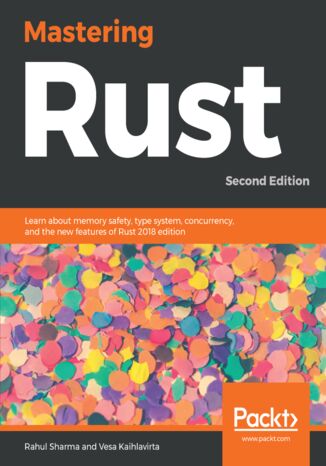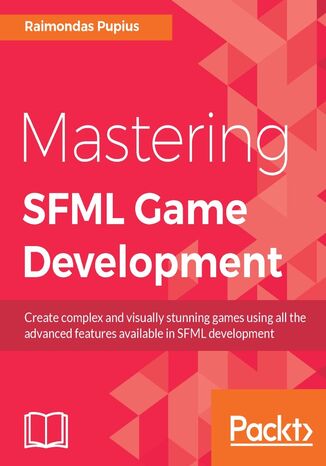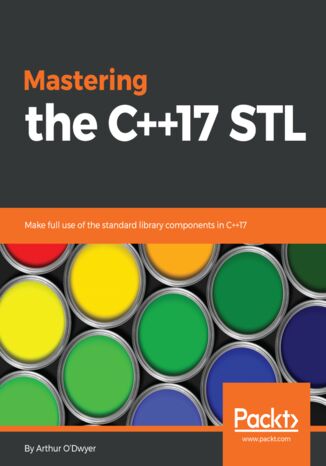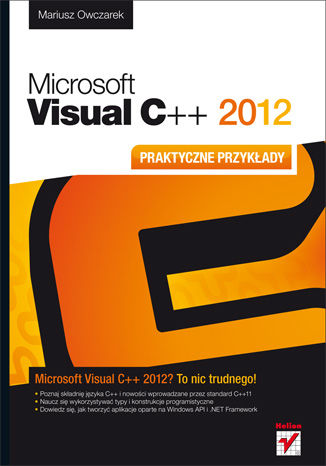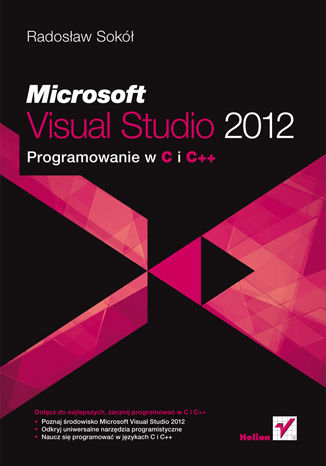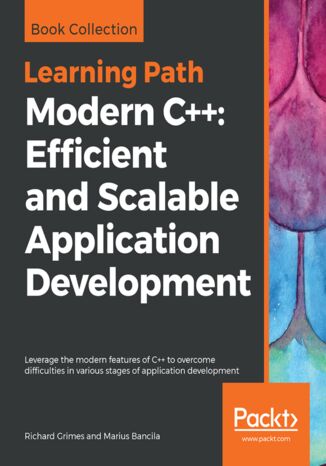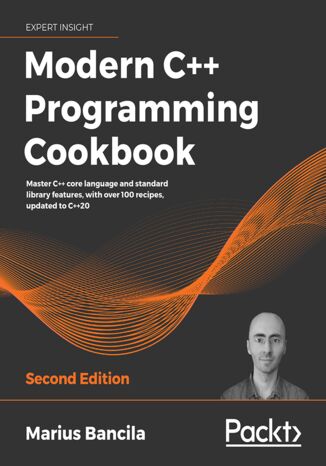Categories
-
- Bitcoin
- Businesswoman
- Coaching
- Controlling
- E-business
- Economy
- Finances
- Stocks and investments
- Personal competence
- Computer in the office
- Communication and negotiation
- Small company
- Marketing
- Motivation
- Multimedia trainings
- Real estate
- Persuasion and NLP
- Taxes
- Social policy
- Guides
- Presentations
- Leadership
- Public Relation
- Reports, analyses
- Secret
- Social Media
- Sales
- Start-up
- Your career
- Management
- Project management
- Human Resources
-
- Architektura i wnętrza
- Health and Safety
- Biznes i Ekonomia
- Home and garden
- E-business
- Ekonomia i finanse
- Esoterecism
- Finances
- Personal finance
- Business
- Photography
- Computer science
- HR & Payroll
- For women
- Computers, Excel
- Accounts
- Culture and literature
- Scientific and academic
- Environmental protection
- Opinion-forming
- Education
- Taxes
- Travelling
- Psychology
- Religion
- Agriculture
- Book and press market
- Transport and Spedition
- Healthand beauty
-
- Office applications
- Data bases
- Bioinformatics
- IT business
- CAD/CAM
- Digital Lifestyle
- DTP
- Electronics
- Digital photography
- Computer graphics
- Games
- Hacking
- Hardware
- IT w ekonomii
- Scientific software package
- School textbooks
- Computer basics
- Programming
- Mobile programming
- Internet servers
- Computer networks
- Start-up
- Operational systems
- Artificial intelligence
- Technology for children
- Webmastering
-
- Antology
- Ballade
- Biographies and autobiographies
- For adults
- Dramas
- Diaries, memoirs, letters
- Epic, epopee
- Essay
- Fantasy and science fiction
- Feuilletons
- Work of fiction
- Humour and satire
- Other
- Classical
- Crime fiction
- Non-fiction
- Fiction
- Mity i legendy
- Nobelists
- Novellas
- Moral
- Okultyzm i magia
- Short stories
- Memoirs
- Travelling
- Narrative poetry
- Poetry
- Politics
- Popular science
- Novel
- Historical novel
- Prose
- Adventure
- Journalism, publicism
- Reportage novels
- Romans i literatura obyczajowa
- Sensational
- Thriller, Horror
- Interviews and memoirs
-
- Archeology
- Bibliotekoznawstwo
- Cinema studies
- Philology
- Polish philology
- Philosophy
- Finanse i bankowość
- Geography
- Economy
- Trade. World economy
- History and archeology
- History of art and architecture
- Cultural studies
- Linguistics
- Literary studies
- Logistics
- Maths
- Medicine
- Humanities
- Pedagogy
- Educational aids
- Popular science
- Other
- Psychology
- Sociology
- Theatre studies
- Theology
- Economic theories and teachings
- Transport i spedycja
- Physical education
- Zarządzanie i marketing
-
- Health and Safety
- History
- Road Code. Driving license
- Law studies
- Healthcare
- General. Compendium of knowledge
- Academic textbooks
- Other
- Construction and local law
- Civil law
- Financial law
- Economic law
- Economic and trade law
- Criminal law
- Criminal law. Criminal offenses. Criminology
- International law
- International law
- Health care law
- Educational law
- Tax law
- Labor and social security law
- Public, constitutional and administrative law
- Family and Guardianship Code
- agricultural law
- Social law, labour law
- European Union law
- Industry
- Agricultural and environmental
- Dictionaries and encyclopedia
- Public procurement
- Management
-
- Africa
- Albums
- Southern America
- North and Central America
- Australia, New Zealand, Oceania
- Austria
- Asia
- Balkans
- Middle East
- Bulgary
- China
- Croatia
- The Czech Republic
- Denmark
- Egipt
- Estonia
- Europe
- France
- Mountains
- Greece
- Spain
- Holand
- Iceland
- Lithuania
- Latvia
- Mapy, Plany miast, Atlasy
- Mini travel guides
- Germany
- Norway
- Active travelling
- Poland
- Portugal
- Other
- Przewodniki po hotelach i restauracjach
- Russia
- Romania
- Slovakia
- Slovenia
- Switzerland
- Sweden
- World
- Turkey
- Ukraine
- Hungary
- Great Britain
- Italy
-
- Philosophy of life
- Kompetencje psychospołeczne
- Interpersonal communication
- Mindfulness
- General
- Persuasion and NLP
- Academic psychology
- Psychology of soul and mind
- Work psychology
- Relacje i związki
- Parenting and children psychology
- Problem solving
- Intellectual growth
- Secret
- Sexapeal
- Seduction
- Appearance and image
- Philosophy of life
-
- Bitcoin
- Businesswoman
- Coaching
- Controlling
- E-business
- Economy
- Finances
- Stocks and investments
- Personal competence
- Communication and negotiation
- Small company
- Marketing
- Motivation
- Real estate
- Persuasion and NLP
- Taxes
- Social policy
- Guides
- Presentations
- Leadership
- Public Relation
- Secret
- Social Media
- Sales
- Start-up
- Your career
- Management
- Project management
- Human Resources
-
- Antology
- Ballade
- Biographies and autobiographies
- For adults
- Dramas
- Diaries, memoirs, letters
- Epic, epopee
- Essay
- Fantasy and science fiction
- Feuilletons
- Work of fiction
- Humour and satire
- Other
- Classical
- Crime fiction
- Non-fiction
- Fiction
- Mity i legendy
- Nobelists
- Novellas
- Moral
- Okultyzm i magia
- Short stories
- Memoirs
- Travelling
- Poetry
- Politics
- Popular science
- Novel
- Historical novel
- Prose
- Adventure
- Journalism, publicism
- Reportage novels
- Romans i literatura obyczajowa
- Sensational
- Thriller, Horror
- Interviews and memoirs
-
- Philosophy of life
- Interpersonal communication
- Mindfulness
- General
- Persuasion and NLP
- Academic psychology
- Psychology of soul and mind
- Work psychology
- Relacje i związki
- Parenting and children psychology
- Problem solving
- Intellectual growth
- Secret
- Sexapeal
- Seduction
- Appearance and image
- Philosophy of life
- Ebooks
- Programming
- C++
C++
Kombinacje C++. 648 łamigłówek programistycznych z odpowiedziami
Od dekad C++ pozostaje jednym z dwóch najważniejszych języków, jeśli chodzi o programowanie systemowe, ale też aplikacyjne. Bez niego nie byłoby Windowsa, Excela, Photoshopa ani dużej części oprogramowania bazodanowego na czele z MySQL. A bez nich trudno sobie wyobrazić funkcjonowanie dzisiejszego świata. Nic więc dziwnego, że C++ od lat pozostaje obiektem zainteresowania programistów - w branży IT niezmiennie utrzymuje się silna potrzeba, aby doskonalić umiejętności programowania w tym języku. Z pomocą przychodzi ta książka - Kombinacje C++. 648 łamigłówek programistycznych z odpowiedziami to zbiór blisko 650 praktycznych zadań doskonalących znajomość języka C++ i umiejętności programistyczne. Układem nawiązuje do podręczników szachowych, które na konkretnych przykładach przybliżają obowiązujące zasady. Zawartość została podzielona na dwie części. Pierwsza zapoznaje z podstawowymi motywami, jak klasy, funkcje czy biblioteki standardowe. Druga część zawiesza poprzeczkę wyżej i wymaga więcej wysiłku - tym bardziej jednak zachęca do zaangażowania się w rozwiązywanie problemów, co w praktyce wprost przełoży się na podniesienie kompetencji programistycznych. Dzięki książce: zrozumiesz działanie programów nauczysz się wyszukiwać błędy w kodzie poznasz kluczowe motywy języka C++ wyniesiesz swoje umiejętności na nowy, wyższy poziom Setki łamigłówek czekają!
Ready to unleash the power of visual effects? From explosive movie scenes to mind-bending game animations, this second edition pushes Blender 4.0+ beyond what you thought possible. Featuring a brand-new chapter on combining multiple simulations for a burning effect and updated guidance on rendering with EEVEE, this book takes your Blender expertise to new heights.While Blender excels in 3D modeling and animation, this guide focuses specifically on VFX, helping you master realistic simulations using EEVEE and Cycles. You'll explore five physics-based simulations—Fluid, Rigid Body, Soft Body, Cloth, and Dynamic Paint—learning essential settings, troubleshooting techniques, and practical workflows. Through nine hands-on projects, including fire, waterfalls, and explosions, you’ll develop the skills to create stunning digital effects. Written by a VFX specialist who has taught thousands through best-selling courses, this book will help you build an impressive portfolio of professional-quality VFX projects in Blender and bring your creative visions to life!
Learn LLVM 12. A beginner's guide to learning LLVM compiler tools and core libraries with C++
LLVM was built to bridge the gap between compiler textbooks and actual compiler development. It provides a modular codebase and advanced tools which help developers to build compilers easily. This book provides a practical introduction to LLVM, gradually helping you navigate through complex scenarios with ease when it comes to building and working with compilers.You’ll start by configuring, building, and installing LLVM libraries, tools, and external projects. Next, the book will introduce you to LLVM design and how it works in practice during each LLVM compiler stage: frontend, optimizer, and backend. Using a subset of a real programming language as an example, you will then learn how to develop a frontend and generate LLVM IR, hand it over to the optimization pipeline, and generate machine code from it. Later chapters will show you how to extend LLVM with a new pass and how instruction selection in LLVM works. You’ll also focus on Just-in-Time compilation issues and the current state of JIT-compilation support that LLVM provides, before finally going on to understand how to develop a new backend for LLVM.By the end of this LLVM book, you will have gained real-world experience in working with the LLVM compiler development framework with the help of hands-on examples and source code snippets.
Learn OpenGL. Beginner's guide to 3D rendering and game development with OpenGL and C++
Learn OpenGL is your one-stop reference guide to get started with OpenGL and C++ for game development. From setting up the development environment to getting started with basics of drawing and shaders, along with concepts such as lighting, model loading, and cube mapping, this book will get you up to speed with the fundamentals.You begin by setting up your development environment to use OpenGL on Windows and macOS. With GLFW and GLEW set up using absolute and relative linking done, you are ready to setup SDL and SFML for both the operating systems.Now that your development environment is set up, you'll learn to draw using simple shaders as well as make the shader more adaptable and reusable. Then we move on to more advanced topics like texturing your objects with images and transforming your objects using translate, rotate and scale.With these concepts covered, we'll move on to topics like lighting to enable you to incorporate amazing dynamic lights in your game world.By the end of the book, you'll learn about model loading, right from setting up ASSIMP to learning about the model class and loading a model in your game environment. We will conclude by understanding cube mapping to bring advance worlds to your game.
Learn WebAssembly. Build web applications with native performance using Wasm and C/C++
WebAssembly is a brand-new technology that represents a paradigm shift in web development. This book teaches programmers to leverage this technology to write high-performance applications that run in the browser. This book introduces you to powerful WebAssembly concepts to help you write lean and powerful web applications with native performance. You start with the evolution of web programming, the state of things today, and what can be done with the advent and release of WebAssembly. We take a look at the journey from JavaScript to asm.js to WebAssembly. We then move on to analyze the anatomy of a WebAssembly module and the relationship between binary and text formats, along with the corresponding JavaScript API. Further on, you'll implement all the techniques you've learned to build a high-performance application using C and WebAssembly, and then port an existing game written in C++ to WebAssembly using Emscripten. By the end of this book, you will be well-equipped to create high-performance applications and games for the web using WebAssembly.
Functional programming allows developers to divide programs into smaller, reusable components that ease the creation, testing, and maintenance of software as a whole. Combined with the power of C++, you can develop robust and scalable applications that fulfill modern day software requirements. This book will help you discover all the C++ 17 features that can be applied to build software in a functional way.The book is divided into three modules—the first introduces the fundamentals of functional programming and how it is supported by modern C++. The second module explains how to efficiently implement C++ features such as pure functions and immutable states to build robust applications. The last module describes how to achieve concurrency and apply design patterns to enhance your application’s performance. Here, you will also learn to optimize code using metaprogramming in a functional way.By the end of the book, you will be familiar with the functional approach of programming and will be able to use these techniques on a daily basis.
LLVM Code Generation. A deep dive into compiler backend development
Quentin Colombet, Kristof Beyls
The LLVM infrastructure is a popular compiler ecosystem widely used in the tech industry and academia. This technology is crucial for both experienced and aspiring compiler developers looking to make an impact in the field. Written by Quentin Colombet, a veteran LLVM contributor and architect of the GlobalISel framework, this book provides a primer on the main aspects of LLVM, with an emphasis on its backend infrastructure; that is, everything needed to transform the intermediate representation (IR) produced by frontends like Clang into assembly code and object files.You’ll learn how to write an optimizing code generator for a toy backend in LLVM. The chapters will guide you step by step through building this backend while exploring key concepts, such as the ABI, cost model, and register allocation. You’ll also find out how to express these concepts using LLVM's existing infrastructure and how established backends address these challenges. Furthermore, the book features code snippets that demonstrate the actual APIs.By the end of this book, you’ll have gained a deeper understanding of LLVM. The concepts presented are expected to remain stable across different LLVM versions, making this book a reliable quick reference guide for understanding LLVM.
Every programmer or engineer, at some point in their career, works with compilers to optimize their applications. Compilers convert a high-level programming language into low-level machine-executable code. LLVM provides the infrastructure, reusable libraries, and tools needed for developers to build their own compilers. With LLVM’s extensive set of tooling, you can effectively generate code for different backends as well as optimize them.In this book, you’ll explore the LLVM compiler infrastructure and understand how to use it to solve different problems. You’ll start by looking at the structure and design philosophy of important components of LLVM and gradually move on to using Clang libraries to build tools that help you analyze high-level source code. As you advance, the book will show you how to process LLVM IR – a powerful way to transform and optimize the source program for various purposes. Equipped with this knowledge, you’ll be able to leverage LLVM and Clang to create a wide range of useful programming language tools, including compilers, interpreters, IDEs, and source code analyzers.By the end of this LLVM book, you’ll have developed the skills to create powerful tools using the LLVM framework to overcome different real-world challenges.
Aditya Sharma, Vishwesh Ravi Shrimali, Michael Beyeler
OpenCV is an opensource library for building computer vision apps. The latest release, OpenCV 4, offers a plethora of features and platform improvements that are covered comprehensively in this up-to-date second edition.You'll start by understanding the new features and setting up OpenCV 4 to build your computer vision applications. You will explore the fundamentals of machine learning and even learn to design different algorithms that can be used for image processing. Gradually, the book will take you through supervised and unsupervised machine learning. You will gain hands-on experience using scikit-learn in Python for a variety of machine learning applications. Later chapters will focus on different machine learning algorithms, such as a decision tree, support vector machines (SVM), and Bayesian learning, and how they can be used for object detection computer vision operations. You will then delve into deep learning and ensemble learning, and discover their real-world applications, such as handwritten digit classification and gesture recognition. Finally, you’ll get to grips with the latest Intel OpenVINO for building an image processing system.By the end of this book, you will have developed the skills you need to use machine learning for building intelligent computer vision applications with OpenCV 4.
Viktor Latypov, Viktor Latypov, Sergey Kosarevsky
Android NDK is used for multimedia applications that require direct access to system resources. NDK is also the key for portability, which in turn allows a reasonably comfortable development and debugging process using familiar tools such as GCC and Clang toolchains.This is a hands-on guide to extending your game development skills with Android NDK. The book takes you through many clear, step-by-step example applications to help you further explore the features of Android NDK and some popular C++ libraries and boost your productivity by debugging the development process.Through the course of this book, you will learn how to write portable multi-threaded native code, use HTTP networking in C++, play audio files, use OpenGL ES 3, and render high-quality text. Each chapter aims to take you one step closer to building your application. By the end of this book, you will be able to create an engaging, complete gaming application.
With two decades of programming experience across multiple languages and platforms, expert game developer and console porting programmer Michael Dunsky guides you through the intricacies of character animation programming. This book tackles the common challenges developers face in creating sophisticated, efficient, and visually appealing character animations.You’ll learn how to leverage the Open Asset Import Library for easy 3D model loading and optimize your 3D engine by offloading computations from the CPU to the GPU. The book covers visual selection, extended camera handling, and separating your application into edit and simulation modes. You’ll also master configuration storage to progressively build your virtual world piece by piece.As you develop your engine-like application, you’ll implement collision detection, inverse kinematics, and expert techniques to bring your characters to life with realistic visuals and fluid movement. For more advanced animation and character behavior controls, you’ll design truly immersive and responsive NPCs, load real game maps, and use navigation algorithms, enabling the instances to roam freely in complex environments.By the end of this book, you’ll be skilled at designing interactive virtual worlds inhabited by lifelike NPCs that exhibit natural, context-aware behaviors.
Mastering C++ Multithreading. Write robust, concurrent, and parallel applications
Multithreaded applications execute multiple threads in a single processor environment, allowing developers achieve concurrency. This book will teach you the finer points of multithreading and concurrency concepts and how to apply them efficiently in C++.Divided into three modules, we start with a brief introduction to the fundamentals of multithreading and concurrency concepts. We then take an in-depth look at how these concepts work at the hardware-level as well as how both operating systems and frameworks use these low-level functions. In the next module, you will learn about the native multithreading and concurrency support available in C++ since the 2011 revision, synchronization and communication between threads, debugging concurrent C++ applications, and the best programming practices in C++.In the final module, you will learn about atomic operations before moving on to apply concurrency to distributed and GPGPU-based processing. The comprehensive coverage of essential multithreading concepts means you will be able to efficiently apply multithreading concepts while coding in C++.
Mastering C++ Programming. Modern C++ 17 at your fingertips
C++ ? ?has ? ?come ? ?a ? ?long ? ?way ? ?and ? ?has ? ?now ? ?been ? ?adopted ? ?in ? ?several ? ?contexts. Its ? ?key ? ?strengths ? ?are ? ?its ? ?software ? ?infrastructure ? ?and ? ?resource-constrained applications. ? ?The ?C++ ? ?17 ? ?release ? ?will ? ?change ? ?the ? ?way ? ?developers ? ?write code, ? ?and ? ?this ? ?book ? ?will ? ?help ?you ? ?master ? ?your ? ?developing ? ?skills ? ?with ? ?C++. With ? ?real-world, ? ?practical ? ?examples ? ?explaining ? ?each ? ?concept, ? ?the ? ?book ? ?will begin ? ?by ? ?introducing ? ?you ? ?to ? ?the ? ?latest ? ?features ? ?in ? ?C++ ? ?17. ? ?It ? ?encourages clean ? ?code ? ?practices ? ?in ? ?C++ ? ?in ? ?general, ? ?and ? ?demonstrates ? ?the ? ?GUI app-development ? ?options ? ?in ? ?C++. ? ?You’ll ? ?get ? ?tips ? ?on ? ?avoiding ? ?memory ? ?leaks using ? ?smart-pointers. ? ?Next, ? ?you’ll ? ?see ? ?how ? ?multi-threaded ?programming can ? ?help ? ?you ? ?achieve ? ?concurrency ? ?in ? ?your ? ?applications. Moving ? ?on, ? ?you’ll ? ?get ? ?an ? ?in-depth ? ?understanding ? ?of ? ?the ? ?C++ ? ?Standard Template ? ?Library. ? ?We ? ?show ? ?you ? ?the ? ?concepts ? ?of ? ?implementing ? ?TDD ? ?and BDD ? ?in ? ?your ? ?C++ ? ?programs, ? ?and ? ?explore ? ?template-based ? ?generic programming, ? ?giving ? ?you ? ?the ? ?expertise ? ?to ? ?build ? ?powerful ? ?applications. Finally, ? ?we’ll ? ?round ? ?up ? ?with ? ?debugging ? ?techniques ? ?and ? ?best ? ?practices.By ? ?the ? ?end ? ?of ? ?the ? ?book, ? ?you’ll ? ?have ? ?an ? ?in-depth ? ?understanding ? ?of ? ?the language ? ?and ? ?its ? ?various ? ?facets.
Mastering OpenCV 3. Get hands-on with practical Computer Vision using OpenCV 3 - Second Edition
Shervin Emami, David Millán Escrivá, Daniel Lelis Baggio, Roy Shilkrot, ...
As we become more capable of handling data in every kind, we are becoming more reliant on visual input and what we can do with those self-driving cars, face recognition, and even augmented reality applications and games. This is all powered by Computer Vision.This book will put you straight to work in creating powerful and unique computer vision applications. Each chapter is structured around a central project and deep dives into an important aspect of OpenCV such as facial recognition, image target tracking, making augmented reality applications, the 3D visualization framework, and machine learning. You’ll learn how to make AI that can remember and use neural networks to help your applications learn.By the end of the book, you will have created various working prototypes with the projects in the book and will be well versed with the new features of OpenCV3.
Qt 5.11 is an app development framework that provides a great user experience and develops full capability applications with Qt Widgets, QML, and even Qt 3D. Whether you're building GUI prototypes or fully-fledged cross-platform GUI applications with a native look and feel, Mastering Qt 5 is your fastest, easiest, and most powerful solution. This book addresses various challenges and teaches you to successfully develop cross-platform applications using the Qt framework, with the help of well-organized projects.Working through this book, you will gain a better understanding of the Qt framework, as well as the tools required to resolve serious issues, such as linking, debugging, and multithreading. You'll start off your journey by discovering the new Qt 5.11 features, soon followed by exploring different platforms and learning to tame them. In addition to this, you'll interact with a gamepad using Qt Gamepad. Each chapter is a logical step for you to complete in order to master Qt.By the end of this book, you'll have created an application that has been tested and is ready to be shipped.
Rahul Sharma, Vesa Kaihlavirta
Rust is an empowering language that provides a rare combination of safety, speed, and zero-cost abstractions. Mastering Rust – Second Edition is filled with clear and simple explanations of the language features along with real-world examples, showing you how you can build robust, scalable, and reliable programs. This second edition of the book improves upon the previous one and touches on all aspects that make Rust a great language. We have included the features from latest Rust 2018 edition such as the new module system, the smarter compiler, helpful error messages, and the stable procedural macros. You’ll learn how Rust can be used for systems programming, network programming, and even on the web. You’ll also learn techniques such as writing memory-safe code, building idiomatic Rust libraries, writing efficient asynchronous networking code, and advanced macros. The book contains a mix of theory and hands-on tasks so you acquire the skills as well as the knowledge, and it also provides exercises to hammer the concepts in. After reading this book, you will be able to implement Rust for your enterprise projects, write better tests and documentation, design for performance, and write idiomatic Rust code.
SFML is a cross-platform software development library written in C++ with bindings available for many programming languages. It provides a simple interface to the various components of your PC, to ease the development of games and multimedia applications. This book will help you become an expert of SFML by using all of its features to its full potential. It begins by going over some of the foundational code necessary in order to make our RPG project run. By the end of chapter 3, we will have successfully picked up and deployed a fast and efficient particle system that makes the game look much more ‘alive’. Throughout the next couple of chapters, you will be successfully editing the game maps with ease, all thanks to the custom tools we’re going to be building. From this point on, it’s all about making the game look good. After being introduced to the use of shaders and raw OpenGL, you will be guided through implementing dynamic scene lighting, the use of normal and specular maps, and dynamic soft shadows. However, no project is complete without being optimized first. The very last chapter will wrap up our project by making it lightning fast and efficient.
Mastering the C++17 STL. Make full use of the standard library components in C++17
Modern C++ has come a long way since 2011. The latest update, C++17, has just been ratified and several implementations are on the way.This book is your guide to the C++ standard library, including the very latest C++17 features. The book starts by exploring the C++ Standard Template Library in depth. You will learn the key differences between classical polymorphism and generic programming, the foundation of the STL. You will also learn how to use the various algorithms and containers in the STL to suit your programming needs. The next module delves into the tools of modern C++. Here you will learn about algebraic types such as std::optional, vocabulary types such as std::function, smart pointers, and synchronization primitives such as std::atomic and std::mutex. In the final module, you will learn about C++'s support for regular expressions and file I/O. By the end of the book you will be proficient in using the C++17 standard library to implement real programs, and you'll have gained a solid understanding of the library's own internals.
Microsoft Visual C++ 2012. Praktyczne przykłady
Microsoft Visual C++ 2012? To nic trudnego! Poznaj składnię języka C++ i nowości wprowadzane przez standard C++11 Naucz się wykorzystywać typy i konstrukcje programistyczne Dowiedz się, jak tworzyć aplikacje oparte na Windows API i .NET Framework Dostępne od niedawna środowisko Visual C++ 2012 oferuje użytkownikom szereg zupełnie nowych możliwości. Dzięki wprowadzeniu obsługi standardu C++11 i zwiększeniu przejrzystości oraz uniwersalności kodu źródłowego rozwiązanie ugruntowało swoją renomę nowoczesnego i nieustannie rozwijanego narzędzia programistycznego do wszechstronnych zastosowań. Ulepszone i dostosowane do nowych wymagań z powodzeniem może konkurować z innymi środowiskami obecnymi na rynku. Potwierdzają to również takie posunięcia producenta, jak zapewnienie wsparcia dla twórców programów działających w systemie Windows 8 i aplikacji mobilnych uruchamianych na platformie Windows Phone. "Microsoft Visual C++ 2012. Praktyczne przykłady" to doskonały przewodnik dla osób chcących poznać język C++ i zacząć pisać programy w środowisku Visual C++. Książka zawiera dokładny opis składni standardowego języka C++, a także praktyczne wskazówki dotyczące tworzenia aplikacji wykorzystujących Windows API oraz .NET Framework. Podręcznik prezentuje nie tylko podstawowe konstrukcje języka i sposoby ich stosowania, lecz także wprowadza czytelnika w bardziej zaawansowane zagadnienia związane z tworzeniem aplikacji działających w systemach operacyjnych Windows. Każdy omawiany tutaj temat został zilustrowany przykładem umożliwiającym praktyczne utrwalenie poznanych wiadomości teoretycznych. Instalacja i obsługa środowiska Microsoft Visual C++ Struktura programów C++ i konstrukcje języka Przegląd instrukcji i typów wbudowanych Podstawy techniki obiektowej Korzystanie z Windows API Tworzenie aplikacji wyposażonych w GUI Obsługa operacji na plikach Programowanie wielowątkowe Używanie komponentów .NET Framework Chcesz nauczyć się szybko działać w nowym Visual C++? Jesteś na dobrej drodze!
Microsoft Visual Studio 2012. Programowanie w C i C++
Dołącz do najlepszych, zacznij programować w C i C++! Poznaj środowisko Microsoft Visual Studio 2012! Odkryj uniwersalne narzędzia programistyczne! Naucz się programować w językach C i C++! Informatyka w obecnym kształcie nie mogłaby istnieć bez języków C i C++. Oba miały ogromne znaczenie dla powstania współczesnych systemów operacyjnych i oprogramowania użytkowego. Od systemu UNIX, poprzez Linuksa, aż po różne wersje systemu Windows — wszystkie środowiska w mniejszym lub większym stopniu zostały zbudowane za pomocą C lub C++. Prosta składnia tych języków, ich wysoka wydajność i ogromne możliwości zapewniły im wierną rzeszę profesjonalnych użytkowników, wielką popularność w instytucjach naukowych oraz liczne „potomstwo” w postaci języków programowania wykorzystujących mechanizmy i konstrukcje wprowadzone po raz pierwszy właśnie w C i C++. Jeśli chcesz poznać podstawy programowania przy użyciu najpopularniejszego narzędzia do tworzenia aplikacji dla Windows, nie mogłeś lepiej trafić! Książka Microsoft Visual Studio 2012. Programowanie w C i C++ wprowadzi Cię w świat programowania proceduralnego w C i zorientowanego obiektowo w C++. Dowiesz się, jak zainstalować i wykorzystywać środowisko Visual Studio 2012, poznasz techniki stosowane przez programistów oraz nauczysz się samodzielnie budować programy. Uważna lektura pozwoli Ci opanować języki C i C++ w takim stopniu, aby dalsza nauka nie stanowiła najmniejszego problemu. Przeczytaj i poznaj: metody instalacji i konfiguracji środowiska Visual Studio 2012 sposoby kompilacji, budowania, poprawiania i uruchamiania programów strukturę kodu programów i konstrukcje programistyczne w językach C i C++ instrukcje warunkowe, operatory i funkcje operacje wejścia-wyjścia, strumienie oraz działania na zbiorach danych podstawy programowania zorientowanego obiektowo dziedziczenie i polimorfizm, szablony i iteratory oraz obsługę sytuacji wyjątkowych Programowanie to nic trudnego, przekonaj się o tym jeszcze dziś!
Richard Grimes, Marius Bancila
C++ is one of the most widely used programming languages. It is fast, flexible, and used to solve many programming problems.This Learning Path gives you an in-depth and hands-on experience of working with C++, using the latest recipes and understanding most recent developments. You will explore C++ programming constructs by learning about language structures, functions, and classes, which will help you identify the execution flow through code. You will also understand the importance of the C++ standard library as well as memory allocation for writing better and faster programs.Modern C++: Efficient and Scalable Application Development deals with the challenges faced with advanced C++ programming. You will work through advanced topics such as multithreading, networking, concurrency, lambda expressions, and many more recipes.By the end of this Learning Path, you will have all the skills to become a master C++ programmer.This Learning Path includes content from the following Packt products:• Beginning C++ Programming by Richard Grimes• Modern C++ Programming Cookbook by Marius Bancila• The Modern C++ Challenge by Marius Bancila
C++ has come a long way to be one of the most widely used general-purpose languages that is fast, efficient, and high-performance at its core.The updated second edition of Modern C++ Programming Cookbook addresses the latest features of C++20, such as modules, concepts, coroutines, and the many additions to the standard library, including ranges and text formatting. The book is organized in the form of practical recipes covering a wide range of problems faced by modern developers.The book also delves into the details of all the core concepts in modern C++ programming, such as functions and classes, iterators and algorithms, streams and the file system, threading and concurrency, smart pointers and move semantics, and many others. It goes into the performance aspects of programming in depth, teaching developers how to write fast and lean code with the help of best practices.Furthermore, the book explores useful patterns and delves into the implementation of many idioms, including pimpl, named parameter, and attorney-client, teaching techniques such as avoiding repetition with the factory pattern. There is also a chapter dedicated to unit testing, where you are introduced to three of the most widely used libraries for C++: Boost.Test, Google Test, and Catch2.By the end of the book, you will be able to effectively leverage the features and techniques of C++11/14/17/20 programming to enhance the performance, scalability, and efficiency of your applications.

